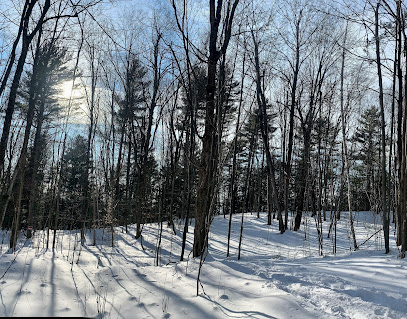The last half of January was warm and thawy.
We had forgotten summer and autumn
and begun to anticipate spring.
Though the days are much longer now
the cold sets in stronger than ever.
The rivers and meadows are frozen.
We do not think of autumn
when we look on this snow.
That earth is effectually buried.
It is midwinter.
Now I travel across the fields
on the frozen crust and walk
across the river in most places.
It is easier to get about the country
than at any other season.
H. D. Thoreau, Journal, February 9, 1851
February 9, 2020
We had now forgotten summer and autumn, but had already begun to anticipate spring. See February 2, 1854 ("Already we begin to anticipate spring, and this is an important difference between this time and a month ago. We begin to say that the day is springlike. Is not January the hardest month to get through? When you have weathered that, you get into the gulfstream of winter, nearer the shores of spring"); February 9, 1854 (The voices of the school-children sound like spring. . . Is not January alone pure winter? December belongs to the fall; is a wintry November: February, to the spring") See also
Though the days are much longer now, the cold sets in stronger than ever. See January 25, 1855 ("For a week or two the days have been sensibly longer, and it is quite light now when the five-o’clock train comes in.); January 24, 1852 ("The sun sets about five.”); January 23, 1854 ("The increased length of the days is very observable of late. What is a winter unless you have risen and gone abroad frequently before sunrise and by starlight?"); January 20, 1852 ("The days are now sensibly longer, and half past five is as light as five was."); January 3, 1854 ("The twilight appears to linger. The day seems suddenly longer.") See also A Book of the Seasons, by Henry Thoreau, Signs of the Spring, the new warmth of the sun
I can cross the river in most places. It is easier to get about the country than at any other season, See February 8, 1852 ("In this winter often no apparent difference between rivers, ponds, and fields.")
February 9. See A Book of the Seasons, by Henry Thoreau, February 9
Though days are longer
cold sets in ever stronger –
it is midwinter.
A Book of the Seasons, by Henry Thoreau, Midwinter
A Book of the Seasons, by Henry Thoreau
"A book, each page written in its own season,
out-of-doors, in its own locality."
~edited, assembled and rewritten by zphx © 2009-2024
http://tinyurl.com/hdt540209
February 9, 2022
The swift streams were open, and the muskrats were seen swimming and diving and bringing up clams, leaving their shells on the ice.
We had now forgotten summer and autumn, but had already begun to anticipate spring.
Fishermen improved the warmer weather to fish for pickerel through the ice.
Before it was only the autumn landscape with a thin layer of snow upon it; we saw the withered flowers through it; but now we do not think of autumn when we look on this snow.
That earth is effectually buried. It is midwinter.
Within a few days the cold has set in stronger than ever, though the days are much longer now.
Now I travel across the fields on the crust which has frozen since the January thaw, and I can cross the river in most places.
It is easier to get about the country than at any other season, — easier than in summer, because the rivers and meadows are frozen and there is no high grass or other crops to be avoided; easier than in December before the crust was frozen.






No comments:
Post a Comment